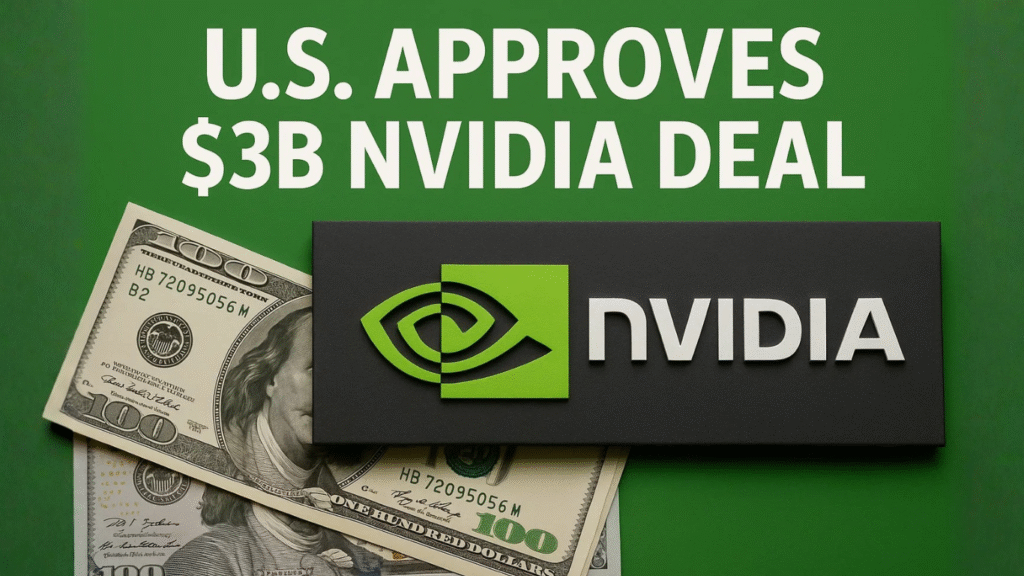The United States government has approved export licenses allowing Nvidia Corp. to sell billions of dollars’ worth of advanced artificial intelligence (AI) chips to the United Arab Emirates (UAE), according to a report by Bloomberg News on Wednesday.
The approvals, issued by the Commerce Department’s Bureau of Industry and Security, come under the terms of a bilateral AI cooperation agreement signed in May 2025. The arrangement enables the UAE to purchase high-end processors crucial for training and deploying AI models, supporting the country’s growing ambition to become a regional AI hub.
A U.S. government spokesperson told Bloomberg that the Commerce Department remains fully committed to the transformational U.S.-UAE AI partnership, describing it as a strategic effort to balance innovation and national security.
Nvidia declined to comment on the report, while the White House and U.S. Department of Commerce did not immediately respond to requests for clarification. UAE officials were also unavailable for comment.
AI Deal Expands Strategic Gulf Partnerships
The export approvals mark another milestone in Washington’s evolving engagement with Gulf nations. The U.S. previously entered a preliminary agreement with the Emirates to permit the import of up to 500,000 Nvidia AI chips per year beginning in 2025, a deal expected to last at least until 2027 and potentially extend through 2030, according to earlier Reuters reports.
Analysts say the arrangement could significantly accelerate the UAE’s AI infrastructure development, supporting national projects in cloud computing, autonomous systems, and large-scale data analytics.
Key highlights from the U.S.-UAE AI cooperation:
- 500,000 Nvidia AI chips annually approved for export beginning in 2025.
- Initial term runs through 2027, with possible extension to 2030.
- Estimated export value of several billion dollars.
- Supports data center construction and next-gen AI model training.
The deal aligns with the Biden administration’s broader push to strengthen technology partnerships with strategically important allies, ensuring the U.S. remains a central player in the global AI supply chain.
Strengthening U.S. Ties with the Gulf

The decision underscores a broader U.S. effort to deepen trade and technology links across the Middle East. President Donald Trump, during his May tour of the Gulf, highlighted over $600 billion in regional commitments, including semiconductor and AI-related deals involving Nvidia, AMD, and Qualcomm.
For Washington, expanding AI cooperation with partners like the UAE serves dual purposes: countering China’s growing technological influence and ensuring that U.S. chipmakers retain access to high-growth global markets.
As AI demand surges worldwide, Nvidia’s expanding footprint in the Gulf region reflects not only commercial opportunity but also the geopolitical significance of AI leadership in shaping future alliances.


